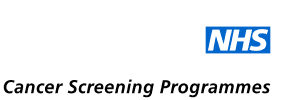Screen-detected breast cancer patients match life expectancy of general UK female population

Screen-detected breast cancer patients match life expectancy of general UK female population |
 |
|
|
Published 11th June, 2008 New figures released on 11 June 2008 show that women diagnosed with early stage breast cancer, detected through the national screening programme and who then go on to receive treatment, have the same life expectancy as the UK female population as a whole. Data for women diagnosed with breast cancer in 2000/01 indicate that women with small, early stage cancers in the 'excellent' or 'good' prognostic groups have a normal life expectancy in the first five years after diagnosis. This equates to 61 per cent of cancers detected through screening. Audit data produced by the Association of Breast Surgery (ABS) and the NHS Breast Screening Programme (NHSBSP) also assessed women diagnosed by screening in the target age group in 1990 and 1991 and found that, women with a cancer that was small, low grade and had not spread to the lymph nodes, that is, had an 'excellent' prognosis, have normal life expectancy at fifteen years after diagnosis. The audit also showed that survival rates are improving for women with more aggressive types of breast cancer. Overall, 15 year survival stands at 86 per cent for women diagnosed with a screen-detected invasive breast cancer in England, Wales and Northern Ireland. Around one in three breast cancers diagnosed in England is screen-detected. The extension of the programme, as announced in the NHS Cancer Reform Strategy, will extend routine invitations to include women aged 47 - 73. This will further increase the proportion of cancers that will be screen-detected in England. Although this represents a significant challenge to screening services it is likely to improve the outcomes for more women. Mr Martin Lee, President of ABS at BASO commented; Professor Julietta Patnick CBE, Director of NHS Breast Screening Programme commented; "The NHS Breast Screening Programme is internationally recognised as a world class service and the commitments in the Cancer Reform Strategy mean we are continuing to improve. The breast screening programme will be extended to include women aged 47 to 73 by 2012. This means an extra 400,000 women each year will be screened, saving even more lives. "The Programme continues to go from strength to strength, however it is important we constantly evaluate its effectiveness. This research will help women to make an informed choice when they receive an invitation for screening." Dr Gill Lawrence, Director of the West Midlands Cancer Intelligence Unit which co-ordinates the audit commented; Since 1990, treatment for breast cancer has improved. It is anticipated that survival rates will be better still for women with a cancer detected through screening. Less extensive surgery is needed now; in 2006/07 three out of four women (9008) with invasive cancers were treated by a breast conserving technique, and for the 6,567 women with cancers smaller than 15mm, fewer than one in five (18 per cent) required a mastectomy. For further information, please contact the NHS Cancer Screening Programmes' press office on 020 7400 4499 or e-mail [email protected]. |
|
||||||||
|
||||||||||